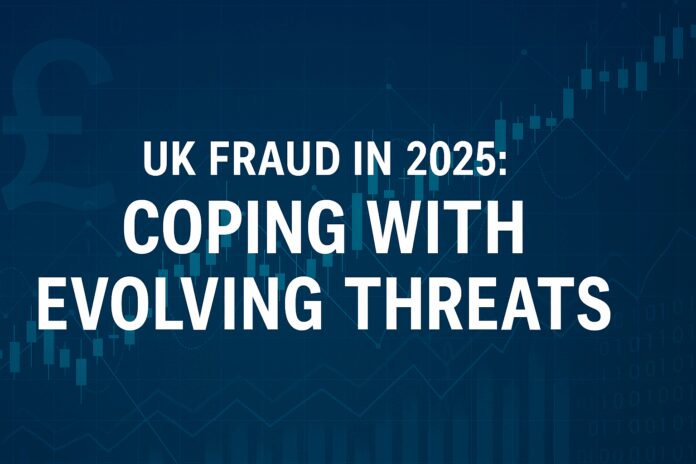In 2025, UK businesses are facing an escalating wave of financial crime — from AI-powered identity fraud to surging SIM swap attacks. And while the threats are evolving rapidly, so too are the strategies to counter them.
The latest Experian UK Fraud and FinCrime Report 2025 paints a sobering picture:
- 421,000 fraud cases were logged in 2024 — the largest year-on-year spike on record
- 59% of UK companies report rising fraud losses
- 35% experienced AI-related fraud in Q1 2025, up from 23% the year before
But this is not a story of helplessness — it’s a story of adaptation. Companies are doubling down on fraud prevention, not cutting back. Only one in ten expects to reduce compliance budgets in 2025; the majority are investing more.
1. AI: The Double-Edged Sword
Generative AI is fueling both sides of the fraud arms race. Criminals are using deepfakes and synthetic identities to commit increasingly undetectable crimes. In response, UK firms are accelerating the deployment of machine learning-based detection systems.
Over 50% of businesses are now developing or refining AI models to:
- Predict anomalous behaviour
- Reduce false positives
- Improve customer decisioning in real-time
The shift from rule-based systems to adaptive, data-driven approaches is underway — and essential.
2. SIM Swap Fraud: A Surging Threat
Cases of SIM swap fraud grew by over 1,000% in 2024. These attacks allow criminals to hijack mobile numbers, intercept two-factor authentication codes, and access critical financial accounts.
Companies are moving away from SMS-based authentication, replacing it with:
- Physical and behavioural biometrics
- Device fingerprinting
- Risk-based authentication models
Stronger authentication isn’t just a technical upgrade — it’s a frontline defence against evolving identity threats.
3. First-Party and Synthetic Identity Fraud: Harder to Detect, Costlier to Ignore
First-party fraud — when a legitimate user abuses financial services — is rising due to changing reimbursement rules. Simultaneously, synthetic identity fraud is costing UK institutions over £300 million annually.
In response:
- 60% of firms are prioritising detection of synthetic identities
- 55% are increasing investment in onboarding-focused identity verification
New approaches leverage behavioural analytics, device data, and network intelligence — not just static personal information.
4. FRAML: Unifying Fraud and AML Operations
The silos between fraud prevention and anti-money laundering (AML) are breaking down. In 2025:
- 60% of businesses are integrating fraud and AML functions into unified FRAML operations
- 65% are focusing more on onboarding-stage risk detection
This convergence allows for better data sharing, faster intelligence, and earlier intervention. In an era of synthetic identities and layered financial abuse, the ability to connect seemingly unrelated signals is a strategic advantage.
5. Consumers Are Paying Attention — and So Must Businesses
For the first time, Gen Z and Millennials are more worried about fraud than older generations. Their concerns go beyond account theft — they include privacy erosion, misinformation, and the misuse of AI-generated content.
Businesses are adapting by:
- Increasing transparency in how data is used
- Building frictionless, but secure, onboarding flows
- Demonstrating visible controls that build trust without creating friction
While 84% of organisations aim to reduce customer friction, they also understand the need for visible protection. The balancing act is becoming a core part of digital brand strategy.
Conclusion: Resilience Requires Investment, Not Optimism
Fraud in 2025 is not static — it’s technologically dynamic, operationally costly, and reputationally dangerous. The businesses that survive and thrive will be those that:
- Invest early in adaptable AI
- Rethink authentication and onboarding
- Integrate compliance and fraud operations
- Listen to the security expectations of a digitally native generation
Fraud is now a strategic board-level issue. For UK businesses, fraud resilience is no longer just about loss prevention — it’s about competitiveness, trust, and long-term viability.




